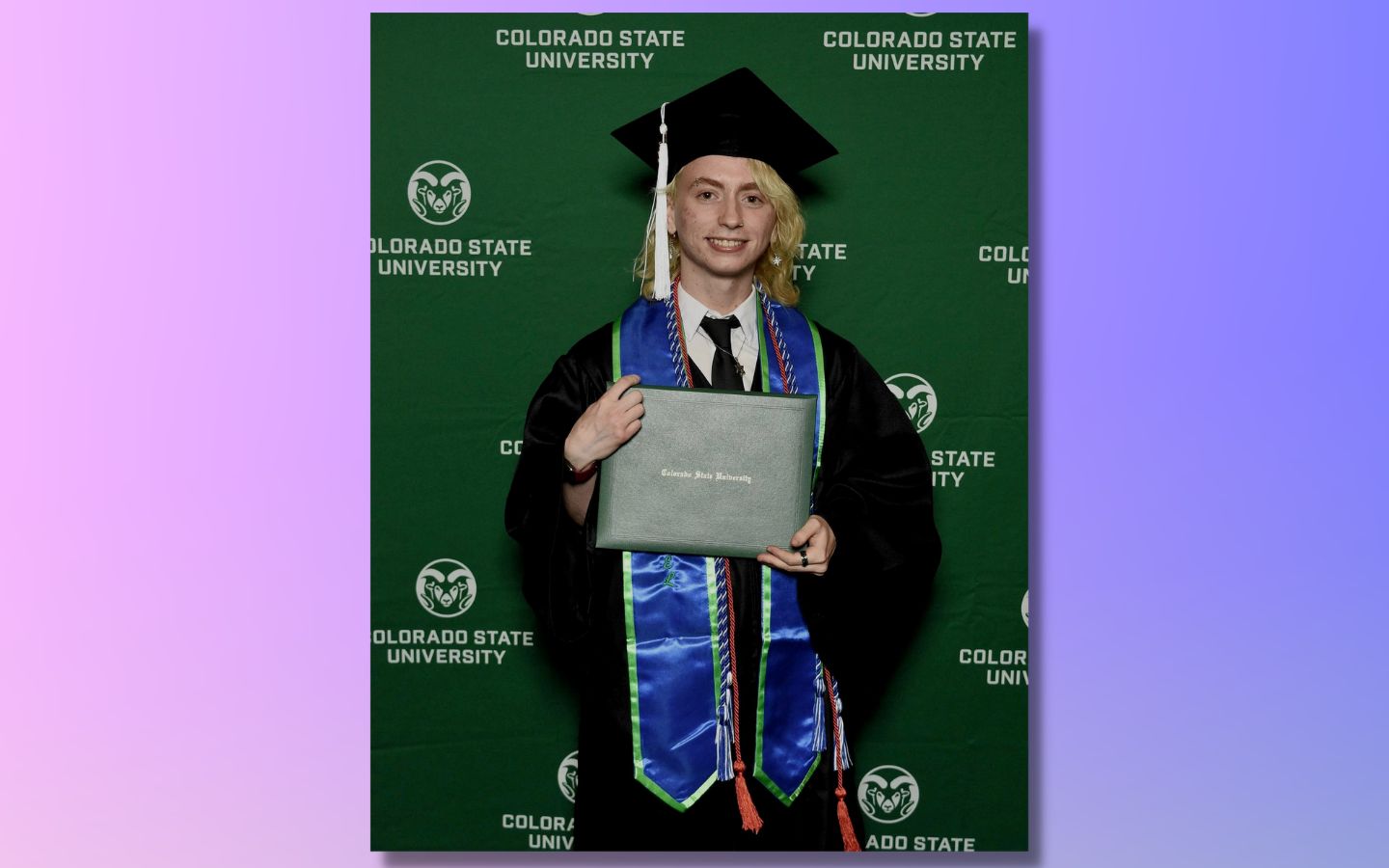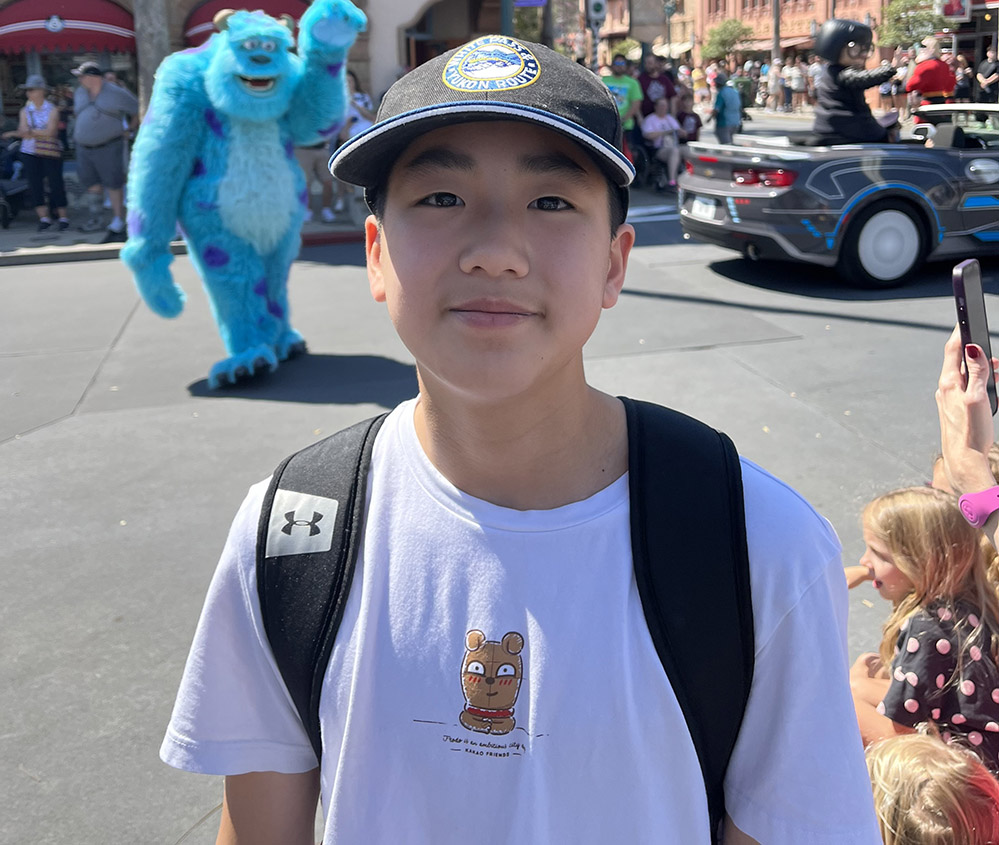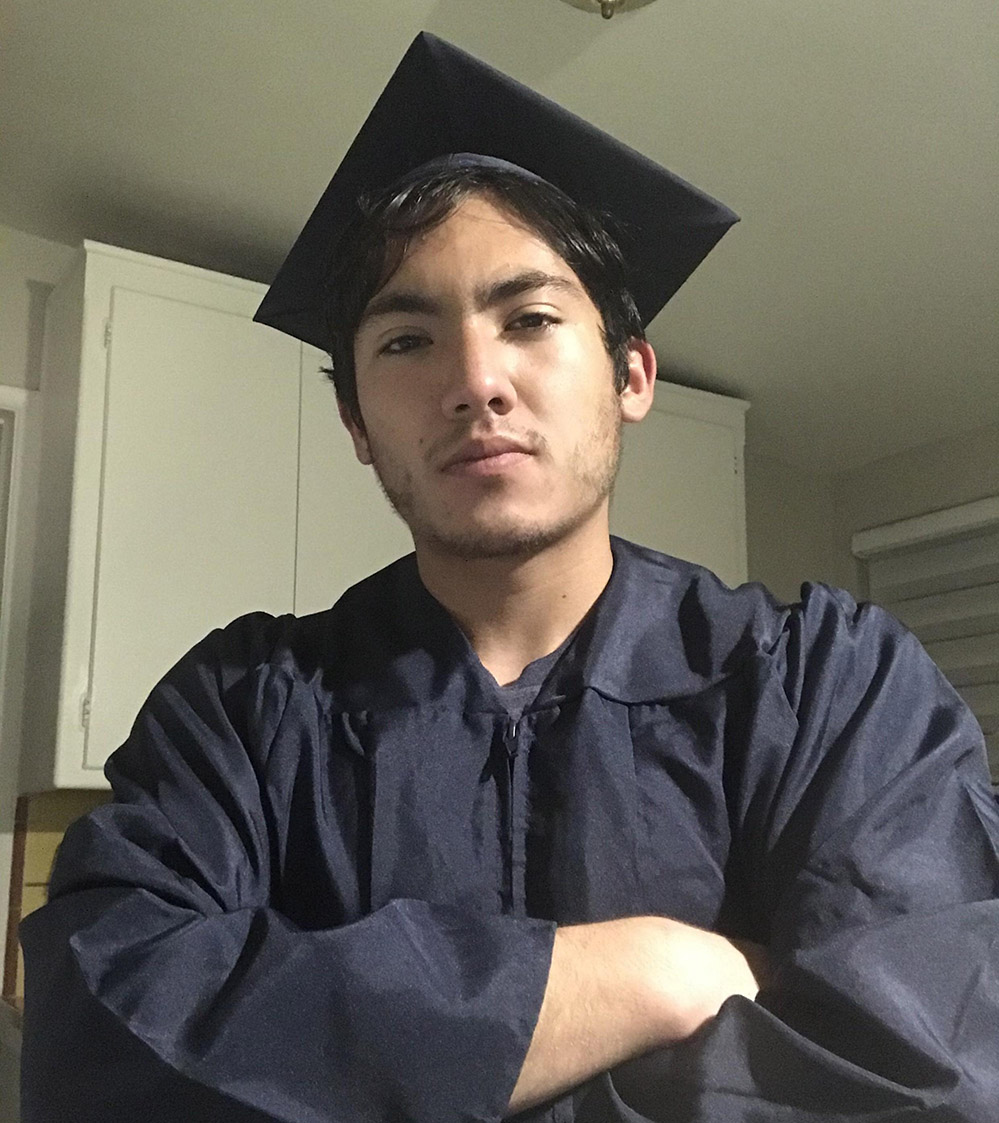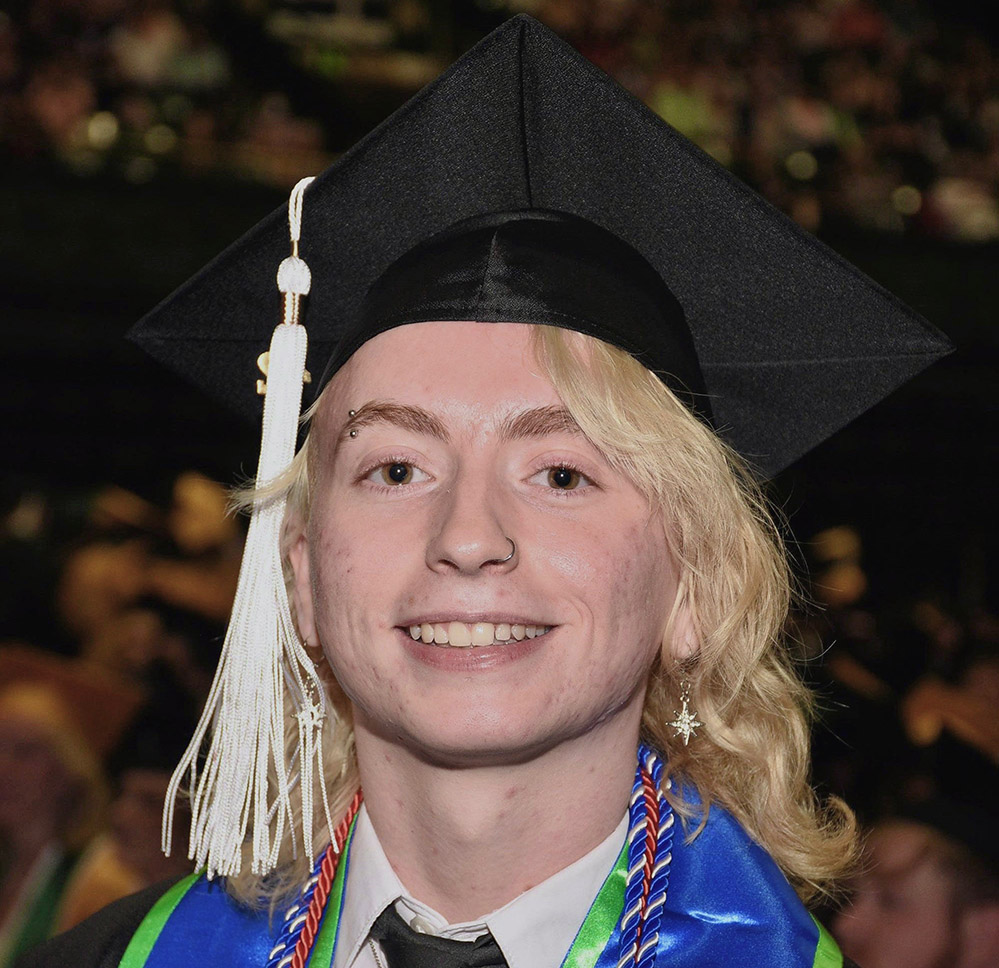Student Voice: Graduating After a Third COVID-Disrupted School Year

Get stories like this delivered straight to your inbox. Sign up for The 74 Newsletter
With graduation season now in full swing, this year’s batch of grads are walking across the stage on the heels of their third pandemic-disrupted school year.
Some, like Joshua Oh, who started sixth grade in 2019-20, never experienced a full year free from virus worry at the campus they’re now leaving. To mark the occasion, we invited a few members of The 74’s Student Council who are graduating, including Oh, to take stock of the current moment, reflect on the highs and lows of pandemic schooling and share what they’ve learned along the way.

Joshua Oh, graduating from Crofton Middle School in Gambrills, Maryland
My views on life and school have drastically changed from the start of middle school to my graduation. I was excited about a new school and new people when I first started middle school in sixth grade. I remember being sad that there was no recess and having a completely different group of friends.
That first week is always the most nerve-racking but fun, meeting new people and fitting into groups. As the year went on, I realized how diverse the people were, unlike in elementary school. The kids were racially different and there was less teasing. I found friends that I connected more with and started to drift away from my original friend group. I met new people and got to talk to them every day until the pandemic started.
At the time, everyone was happy getting a break from school, not knowing how long this break would be. Those two weeks increased from weeks to months until the lockdown started. I would watch the news and be scared that people I know could get COVID and die. I felt like I would be stuck inside forever and the world was falling apart. I had peers around me losing family members and it really scared me when a close friend’s uncle passed away. I was afraid the same thing could happen to the people I care about.
I was happy playing video games and doing nothing, but virtual school started a short time later. It felt like the first day of school again, but communication with everyone had stopped. The rest of the year was easy, with little teaching and easy assignments.
The school system used summer break to fix virtual learning, and when the new school year started, we got actual work. There were no requirements for camera use during class, so nobody used them. Nobody knew what each other looked like, making it difficult to break the ice. At the time, I didn’t have much communication with my friends except through video games. I lost a couple and gained a few friends, but this was a low point in my middle school career.
Things started to get easier when hybrid learning was introduced, although optional. I was one of the few to pick this and got to make new friends. I didn’t learn much from this year, but it is something I will never forget. Restrictions started to decrease during that summer, and I hung out with my friends more. When the new school year started, in-person learning was required, along with masks. School started to feel normal again, and masks became optional. As the year went on, COVID faded from the news. It felt like COVID was gone and as if a dark cloud was lifted from everyone’s head.
I’m now in the last month of middle school, and it feels surreal that it’s all ending. In sixth grade, I thought middle school would be fun and would last a while, but it is almost over. I have changed a lot from the start of sixth grade to the end of eighth grade. I skipped a year where many things changed, including me, and I don’t get excited about the same things. I used to be insanely happy about things like Christmas and Halloween, but COVID has made me care about other things like time with friends and family.
I hope in high school COVID won’t cloud my thoughts and I want to spend more time having fun with friends. It feels like COVID is attached to middle school and high school will be a fresh start. COVID will affect my future challenges by helping me realize that these problems are small. I know that I have overcome a huge obstacle and am much stronger and more resilient than I was before. The pandemic has taught me how to adapt when situations like these occur and changed who I am.

Diego Camacho, graduating from Collegiate Charter High School in Los Angeles, California
There is a strange connection between journalism and physics. At their very best, both subjects seek to expose an objective, unyielding truth. That concept, the search for reality, has motivated all my academic endeavors.
But, unfortunately, COVID limited my high school’s ability to offer avenues for exploring the two subjects I love so much.
Whatever underlying issues were present at my school were exacerbated by the pandemic. With a small campus and student body of 200, certain problems can become more prominent than in larger schools. The resignation of a teacher, for example, may mean the loss of an entire class for the remainder of the year. Course offerings one year may be very different from the previous years.
My school once had a physics class. After talking with the school about the possibility of taking AP Physics for my junior year, I learned the school no longer offered it and only allowed two AP classes per student, per year, assigned based on grade. Thankfully, dual-enrollment at East Los Angeles Community College allowed me to take classes the school was unable to offer.
Many educators I had the pleasure of meeting my sophomore year left the following year. We lost our PE/biology teacher, an English teacher, our enrichment coordinator and a mathematics teacher, among quite a few others. For a small school, this was incredibly difficult. On top of that, our principal resigned that summer. Since then, the school has had many temporary principals. That looming, hectic uncertainty affected students’ ability to plan ahead.
Without a mathematics teacher, the school had to combine their pre-algebra and pre-calculus courses. Seniors and juniors shared a Zoom call, relying on Khan Academy’s free online courses rather than live teaching.
With in-person learning for senior year, I asked for an exemption to my school’s two AP class policy, hoping to stuff my senior schedule full. My school counselor was unable to grant me the exemption.
Although I did not have many STEM opportunities at my high school, my passion for physics and journalism never waivered. COVID, teacher shortages, and strict policies were stepping stones to greater things. There are countless avenues for discovery, learning and growth outside of school. From dual enrollment at your local community college, to student research, to internship opportunities at the L.A. Times, genuine passions can’t be quelled.
Currently, I am preparing for a gap year of learning, project-finishing and internship-taking before I make a college commitment. Now, with the conclusion of my senior year, I am optimistic that future graduating classes at my former school will not face the COVID-related challenges I did.

Kota Babcock, graduate of Colorado State University in Fort Collins, Colorado
After eight jam-packed semesters at CSU, I walked across the stage and received my diploma on May 13. It’s only been about a month since then, but already, leaving behind my identity as a student has been harder than I expected.
With each exam, I found myself craving the freedom from homework, on-campus jobs and the stress of student life. As I now walk away, it’s strange to think that for the first time since I was 5 years old, I cannot call myself a student.
While in undergrad, I was deeply involved in HIV and LGBTQ activism. As the chair of All The T.E.A. (Teach, Empower, Advocate), I drove over an hour from Fort Collins to Denver to coordinate workshops, attend local community conferences and to meet with the activists who taught me everything I know. My efforts with All The T.E.A. shaped my interest in fighting antisemitism on campus and in advocating for the full inclusion of minority students at Colorado State.
I also worked as KCSU-FM’s news director and as the Rocky Mountain Collegian’s arts and culture director, interviewing a variety of musicians, small business owners and other notable locals.
I’m fortunate enough to have found a job right away as a general assignment reporter at a local Wyoming newspaper, the Laramie Boomerang. But striking the balance with continuing my activism work now presents a new challenge.
I still make my way to Denver each month (sometimes virtually) to work toward the same goal All The T.E.A. has worked toward since I was in middle school: empowering people living with HIV and advocating for a better future for all people impacted by HIV. A difficulty we faced since 2020 continues to plague the organization, as COVID-19 made it nearly impossible for people to consider HIV an urgent enough public health and social justice issue to volunteer their time to. As our organization moves toward the future, we’re building partnerships to continue offering educational resources, free HIV testing, a shared community and more.
As for life in Laramie, it’s much different than the experiences I had growing up in Denver, although somewhat similar to the college town I spent the last four years in. Shopping options are a bit scarce, as are easy-to-find LGBTQ spaces for non-students compared to any city in Colorado. Despite Wyoming not having a single gay bar, the aftermath of Matthew Shepard’s gay-bashing death pushed forward intense change in the small city. When Shepard attended the University of Wyoming in Laramie in 1998, two men from the city beat Shepard and left him for dead outside of town, and Shepard later died in a Fort Collins hospital. Now, most of downtown Laramie is covered in gay or transgender pride flags, and the city recently celebrated its sixth annual pride festival. The story of Shepard haunted me in my youth, especially as my friends and I dealt with anti-gay bullies throughout middle school just over 100 miles south. His death deeply impacted the local communities in both Colorado and Wyoming, and it served as a warning to openly LGBTQ people throughout my pre-teen and teenage years. Fort Collins, it seems to me, has largely moved on while Laramie remains mournful.
Looking back on my career as a student, I sometimes grieve what the pandemic took from me — my study abroad plans were canceled twice — but I also reflect on what I’ve learned. Student media taught me to stand up as loudly as possible for change. From my coursework to my two on-campus jobs and my work with the Hillel Jewish Center at CSU, I learned that to survive as a minority in any space that marginalizes your experiences, you must be as loud as you can be.
While I never went into journalism with the intent of uncovering secrets or exposing corruption, I did go into it knowing that people in powerful places don’t typically want social change or transparency, and fighting back against that is my goal in everything I do. As I move into my adult life, I won’t forget this lesson and I hope that incoming college students can understand this as well.
This story was brought to you via The 74’s Student Council initiative, an effort to boost youth voices in our reporting. America’s Promise Alliance helped in the recruiting of our diverse 11-member council and the idea was conceived as part of Asher Lehrer-Small’s Poynter-Koch Media and Journalism Fellowship.
Get stories like these delivered straight to your inbox. Sign up for The 74 Newsletter

;)